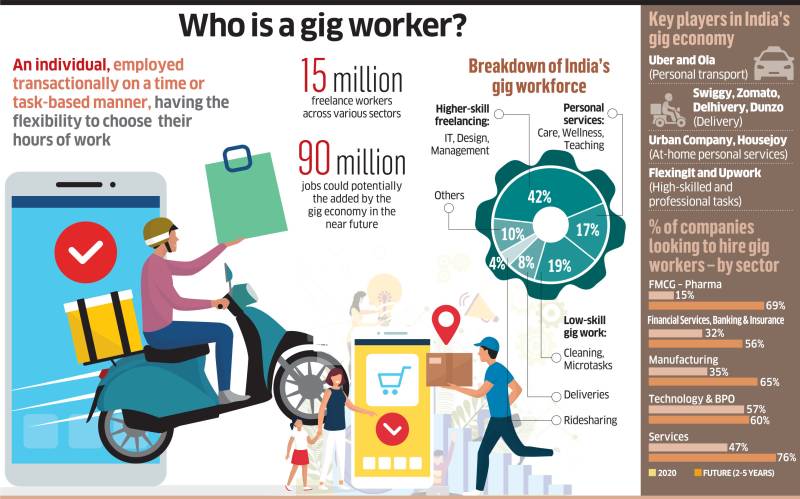IT companies in India are hiring more gig workers to meet increasing demand and battle high attrition rates, Livemint reports. According to data from staffing firm Xpheno, hiring of gig workers by tech enterprises has seen a growth range of 2% to 19% compared to the last quarter. Companies like Tech Mahindra are hiring gig workers with niche skills to complete pending digital projects and fill new roles.
Hiring more gig workers helps create a robust talent pipeline, says Harshvendra Soin, chief people officer at Tech Mahindra. India currently has more than 15 million freelance workers deployed on tech projects, according to an Assocham report released in June this year.
Who is Gig workers –
Gig workers are independent contractors, online platform workers, contract firm workers, on-call workers, and temporary workers. Gig workers enter into formal agreements with on-demand companies to provide services to the company’s clients.
A gig economy is a free market system in which temporary positions are common and organizations hire independent workers for short-term commitments. The term “gig” is a slang word for a job that lasts a specified period of time. Traditionally, the term was used by musicians to define a performance engagement.
The gig economy gets its name from each piece of work being akin to an individual ‘gig’ – although, such work can fall under multiple names. It has previously been called the “sharing economy” — mostly in reference to platforms such as Airbnb — and the “collaborative economy”.
Examples
Examples of a gig economy are those jobs that individuals discover and access through online platforms that list such jobs. These jobs are often one-time or short-term contract jobs. These include driving for a ride-sharing service, painting someone’s house, freelance work, coaching, fitness training, and tutoring.
Currently, around 47 percent of the gig work is in medium-skilled jobs like electricians, carpenters, beauticians, construction workers, and telecallers, about 22 percent in high-skilled jobs, and about 31 percent in low-skilled like cab drivers, delivery executives, pickers and packers, and others.

